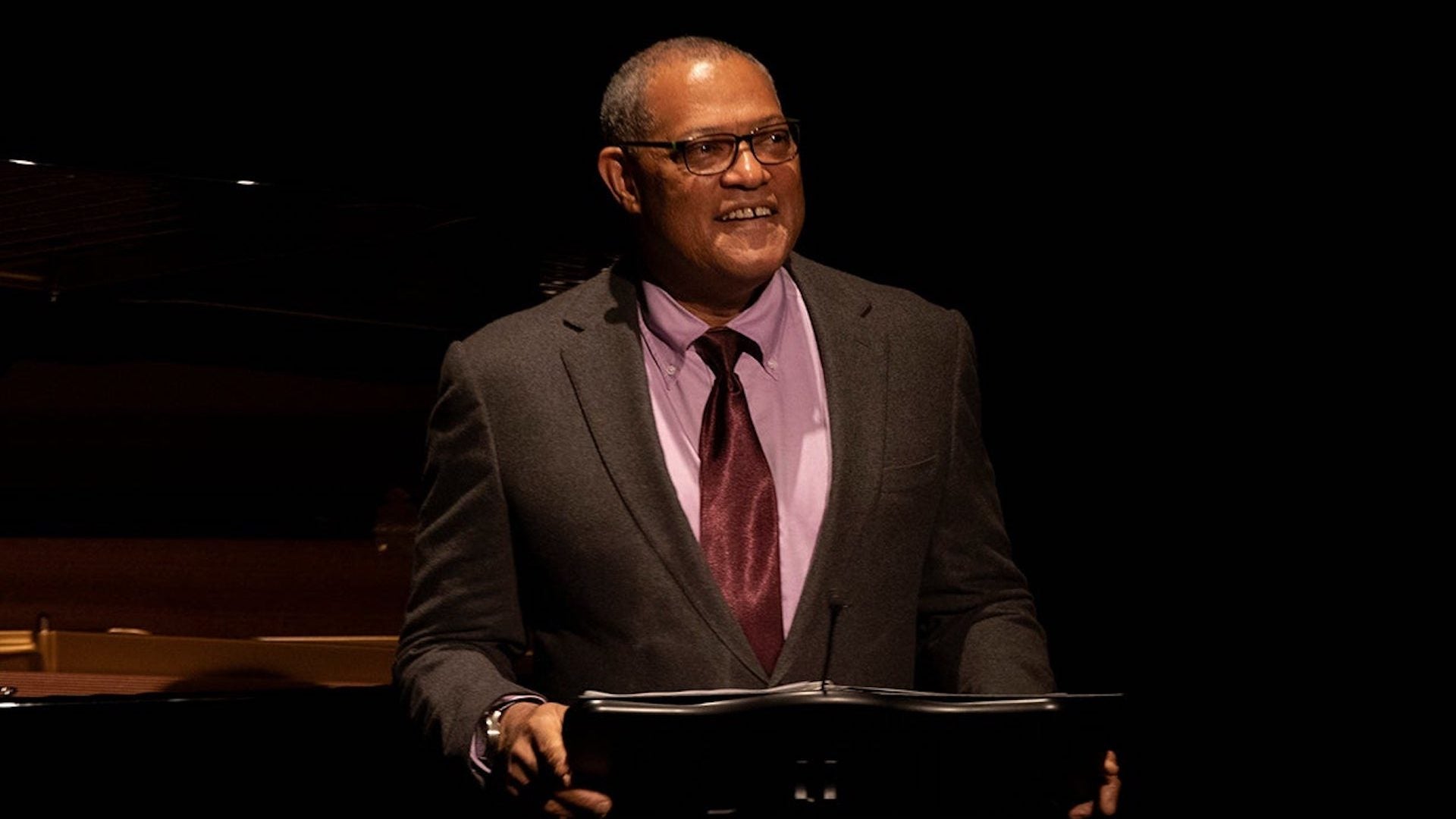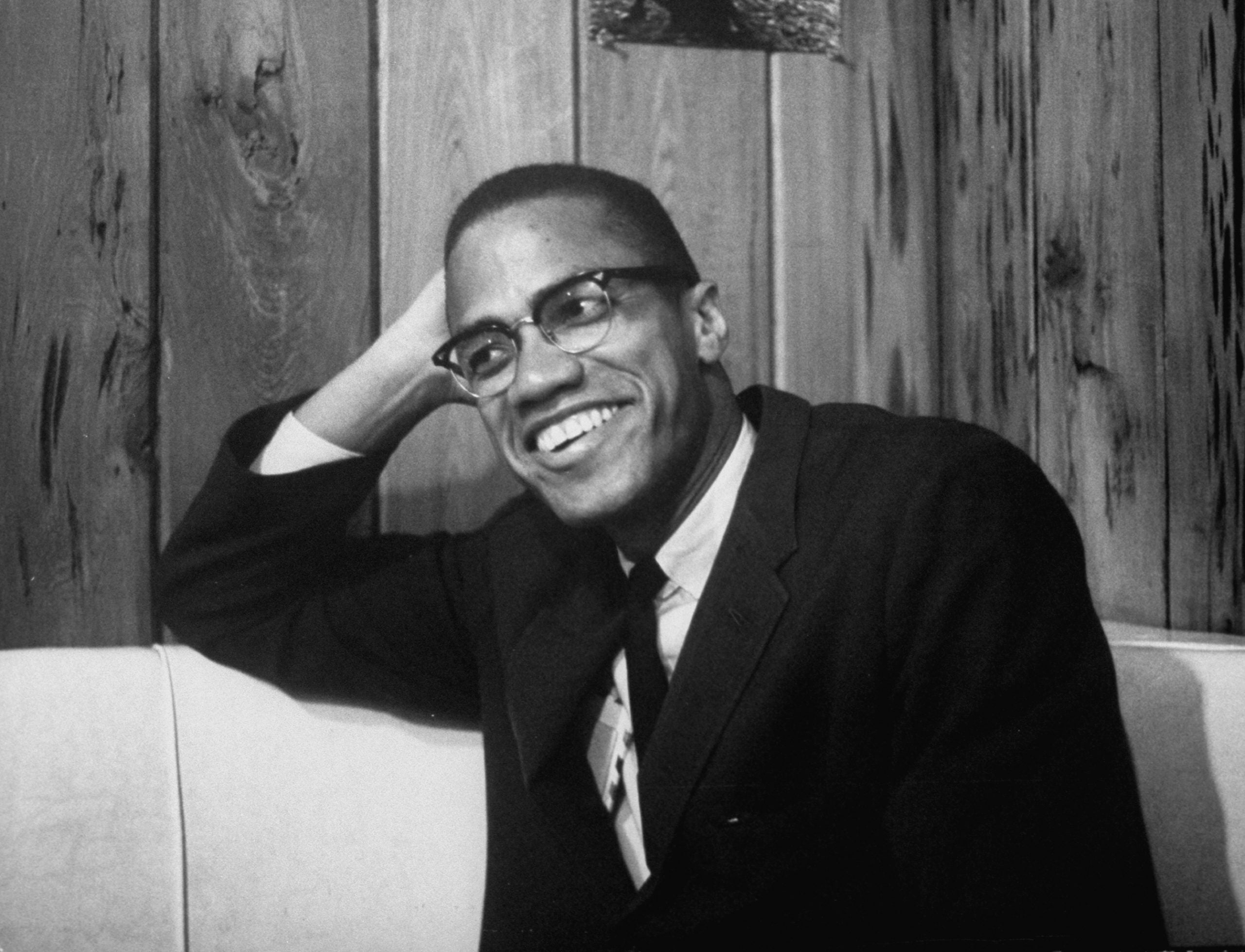
I read The Autobiography of Malcolm X written by Roots author Alex Haley for the first time in college. It was powerful and enlightening, to say the least. So much so that I called my mother upon closing the book and asked her why she had never told me more about this amazing man and how important he was to Black America.
She waited for my rant to finish and then reminded me that the book, still in my hand, was one I had pulled from her own bookshelf. That the information had always been there, but I had not been ready to receive it. She was dropping gems just like Brother Malcolm did.
Malcolm X — his words, his teachings — were critical as I continued my journey of what it meant to be Black in America, and more specifically what it meant to be Black at a predominantly white institution. My thoughts on Malcolm X mirrored those of Laurence Fishburne.
“His opinions about race in America were thoughtful, honest, fearless and the book, Malcolm’s life story, continues to influence me in so much as I am able to meet the world with my intelligence and as fearlessly as possible,” he said in a recent interview for Audible. “His life, his example, has provided a great deal of inspiration for me to find that courage perhaps when I don’t feel like I have it all the time.”
Fishburne’s words are relevant because The Autobiography of Malcolm X is now available on Audible, performed by the actor and producer. His elocution, perfected on stage and evident in television and film, make X’s autobiography an easy yet informative listen. While many fantasize that they’d love to have their lives narrated by James Earl Jones or Morgan Freeman, there is no one better to embody Malcolm X’s story than Fishburne.
Many may know Fishburne as the cantankerous grandpa from Black-ish or perhaps as Morpheus from The Matrix. But it’s his stage work, playing Henry II opposite Stockard Channing, or his role in August Wilson’s Two Trains Running where it’s evident that he’s the right choice to narrate this story. I was fortunate to have seen Fishburne on Broadway over a decade ago when he portrayed the late Supreme Court justice Thurgood Marshall in the eponymous one-man play. His diction, that booming voice, his intensity, are in a class by themselves.
As a man, Malcolm X was an enigma, transforming himself multiple times in his short life. Often we hear excuses being made about the victims of police brutality: They were no angel, they shouldn’t have been there, and so on. Malcolm was incarcerated for several years and went on to mobilize thousands on issues of both civil and human rights. In fact, through Fishburne, Malcolm ruminates on what his life would’ve surmounted to had it not taken a life-changing turn when he was around Tamir Rice’s tender age of 12: He was told by a teacher that he had no business thinking about being a lawyer when he grew up. One wonders what might have become of Rice, Trayvon Martin and Michael Brown had they lived to see their full potential.

In a time when people are protesting police brutality and injustice against Black people in the streets daily, Malcolm X’s words can be instructive. When we see performative allyship from sports organizations that will “allow” their players to take a knee or put a hashtag on their jerseys, I am reminded of what Malcolm said about making progress in this country: “If you stick a knife in my back nine inches and pull it out six inches, there’s no progress. If you pull it all the way out, that’s not progress. The progress is healing the wound that the blow made. They haven’t even begun to pull the knife out, much less heal the wound. They won’t even admit the knife is there.”
Fishburne added, “We know that Alex Haley did his job correctly. We know that Malcolm X, El Hajj Malik El Shabazz, told his story truthfully. If I have been true to my craft, then hopefully the listener will come away feeling a little closer to who Malcolm was and they will take some inspiration from his example.”
Having listened to The Autobiography of Malcolm X on Audible, I can say unequivocally that Fishburne has accomplished his goal.
April Reign is the creator of #OscarsSoWhite, the vice president of content strategy for Ensemble, and a co-founder of #SheWillRise, a campaign to nominate and confirm the first Black woman Supreme Court justice.